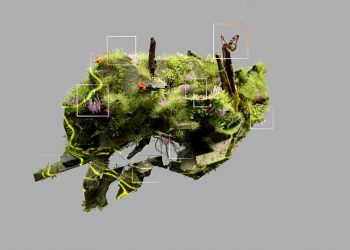No products in the cart.
How AI is Transforming Employee Expectations in 2025
AI is not just a tool; it's reshaping employee expectations and job security. Explore the implications for the future of work.
As the sun rises on a new era of work, the landscape is illuminated by the glow of artificial intelligence. In 2025, AI is no longer just a whisper in the corridors of tech startups; it’s a powerful force reshaping employee expectations, tools, and job security. The question is, are we ready for the changes it brings?
Imagine a world where your workday begins not with a cup of coffee, but with a personalized AI assistant that curates your tasks based on your preferences and performance patterns. This isn’t science fiction; it’s the new normal. AI tools are increasingly becoming the backbone of productivity in workplaces across the globe, providing support that was previously unimaginable.

But with great power comes great responsibility. As organizations harness these technologies, the ethical implications of AI in the workplace are under scrutiny. Employees are not just concerned about how AI can enhance their productivity; they’re also asking critical questions about job security and the potential for bias in AI algorithms. The tension between innovation and ethics is palpable.
Context and Background
According to a recent report by McKinsey, AI could contribute up to $15.7 trillion to the global economy by 2030, fundamentally altering the way we work. This projection is stirring excitement and anxiety in equal measure. Young professionals entering the workforce today bring with them a different set of expectations compared to their predecessors. They seek not only jobs that pay well but also environments that prioritize ethical practices and job security.
Young professionals entering the workforce today bring with them a different set of expectations compared to their predecessors.
Consider Sarah, a recent graduate who landed a job at a tech company that prides itself on its innovative use of AI. Initially thrilled by the prospect of working with cutting-edge technology, Sarah soon found herself grappling with the implications of AI on her role. “I love that my tasks are optimized by AI,” she shared. “But I can’t help but worry about what happens if AI can do my job better than I can.”
This sentiment echoes across industries. Employees are starting to question whether AI will be their ally or their adversary. The truth is, while AI can enhance productivity, it also raises legitimate concerns about job displacement and the future of work.
Analysis: Perspectives and Counterpoints
From the perspective of employers, the integration of AI is often seen as a means to streamline operations and enhance efficiency. Companies are investing heavily in AI technologies to stay competitive. For instance, a leading financial services firm recently implemented AI-driven analytics tools, resulting in a 20% increase in productivity. Yet, this leap forward has not come without pushback. Employee advocates are worried that such technologies could lead to mass layoffs, particularly in roles that AI can easily automate.
The ethical implications of AI are equally complex. As AI systems learn from vast data sets, they can inadvertently perpetuate biases present in the data. A study by MIT found that facial recognition software, which is increasingly used for security purposes, misidentified women of color at a higher rate than white men. Such findings raise alarms about the fairness of AI in critical workplace decisions.
Moreover, there’s a growing call for transparency in how AI systems operate. Employees want to understand how decisions are made and what data is being used. They seek assurance that their jobs won’t be sacrificed on the altar of efficiency. In response, some companies are adopting more transparent practices, holding workshops to educate employees about AI technologies and their implications.
Yet, not all hope is lost. Many experts argue that AI can also create new job opportunities. As routine tasks become automated, there’s a chance for employees to pivot toward more creative and strategic roles. The World Economic Forum predicts that by 2025, 85 million jobs may be displaced, but 97 million new roles could emerge, particularly in areas like AI management and data analysis.
Such findings raise alarms about the fairness of AI in critical workplace decisions.
The Road Ahead
As we look to the future, it’s clear that the relationship between AI and employee expectations will continue to evolve. Employers must navigate the delicate balance between leveraging AI for operational efficiency and ensuring that their workforce feels secure and valued. This means creating environments where employees are not just cogs in a machine but active participants in shaping their workplace.
For young professionals, the message is clear: adapt and advocate. Embrace the technological advancements that AI offers while remaining vigilant about your rights and expectations as an employee. Be proactive in seeking roles that not only utilize AI but also prioritize ethics and transparency.
In this rapidly changing landscape, the future of work will be defined by our ability to harness technology responsibly. As we stand on the brink of what’s next, let’s ensure that the conversations we’re having today about AI and ethics lead to a more equitable and secure workplace for all.











